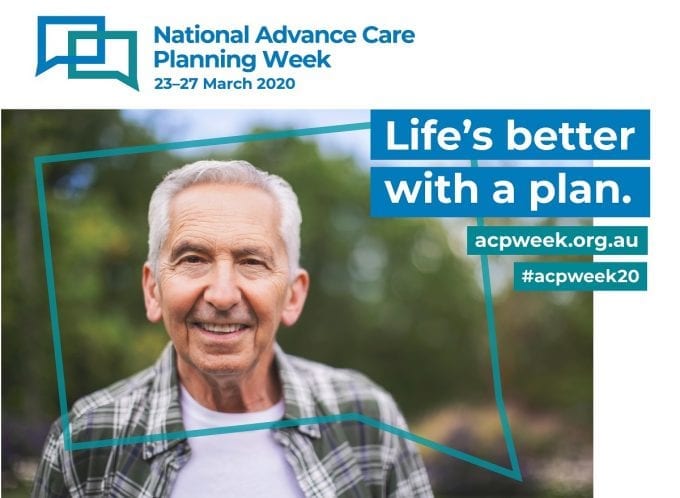Advance Care Planning Week: Australian men urged to future proof their medical care

Most older Australian men males are failing to plan their future care and prepare for a time where they are unable to communicate due to illness or accident. Given that almost half of us will be unable to make our own end-of-life decisions, it makes sense to plan ahead, rather than leave it to chance and for others to decide for you.
We recently spoke to Linda Nolte, Program Director of Advance Care Planning Australia, the national authority on advance care planning about how Australian seniors can better safeguard their future care.
What is advance care planning?
Advance care planning is a process that enables people to plan their future health care. It provides direction to healthcare professionals and loved ones when a person is not in a position to make and/or communicate their own healthcare choices.
Generally, we don’t let others decide on how are financial assets are distributed. We safeguard this by writing a Will. Therefore we shouldn’t let others make critical decisions about medical treatments that may prolong or shorten our life, by completing an Advance Care Directive.
Healthy ageing is about living life on your terms
“An important part of healthy ageing is making informed choices about your medical treatment and planning ahead for future events. It’s concerning that in a time where older Australians are rightly demanding greater choice and autonomy over their care, more than 80% of Australian men aged over 65 are still without an advance care plan,” said Linda.
“Too many people are ending their days with no voice or choice in the care they receive. Families are left in despair and often times in conflict, as they are left to blindly make decisions for their loved one and under great stress. A little planning now will go a long way towards alleviating the burden from those closest to you and ensuring your voice is heard.
“If living well to the end and on your own terms matters to you, I encourage you to find out more. Document your wishes in an Advance Care Directive and appoint a substitute decision- maker you can trust,” explained Linda.
It’s easier than you think
Advance care planning usually starts with a conversation with your loved ones or mates, where you clarify your preferences about the care you would want if you were incapacitated. It may cover the kind of medical interventions you would want or prefer to avoid. You do not require a solicitor to complete the forms and they can be signed by your GP.
Help is here
For free, personalised advice call Advance Care Planning Australia’s National Advisory Service on 1300 208 582, 9am – 5pm (AEST) Monday to Friday.
Get involved
23 – 27 March is National Advance Care Planning Week. To find more information, access relevant forms for your state or territory or to find an event near you, go to acpweek.org.au.